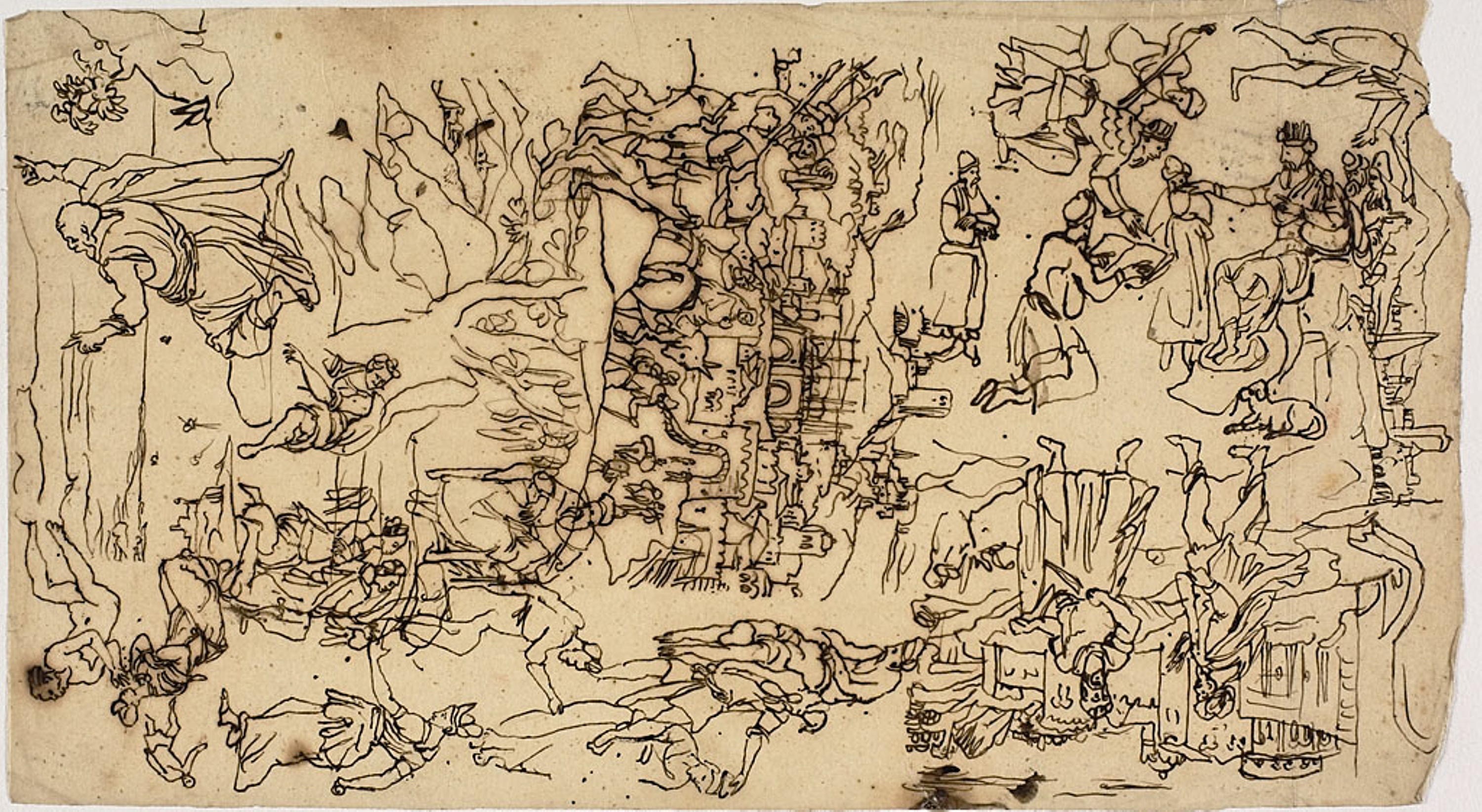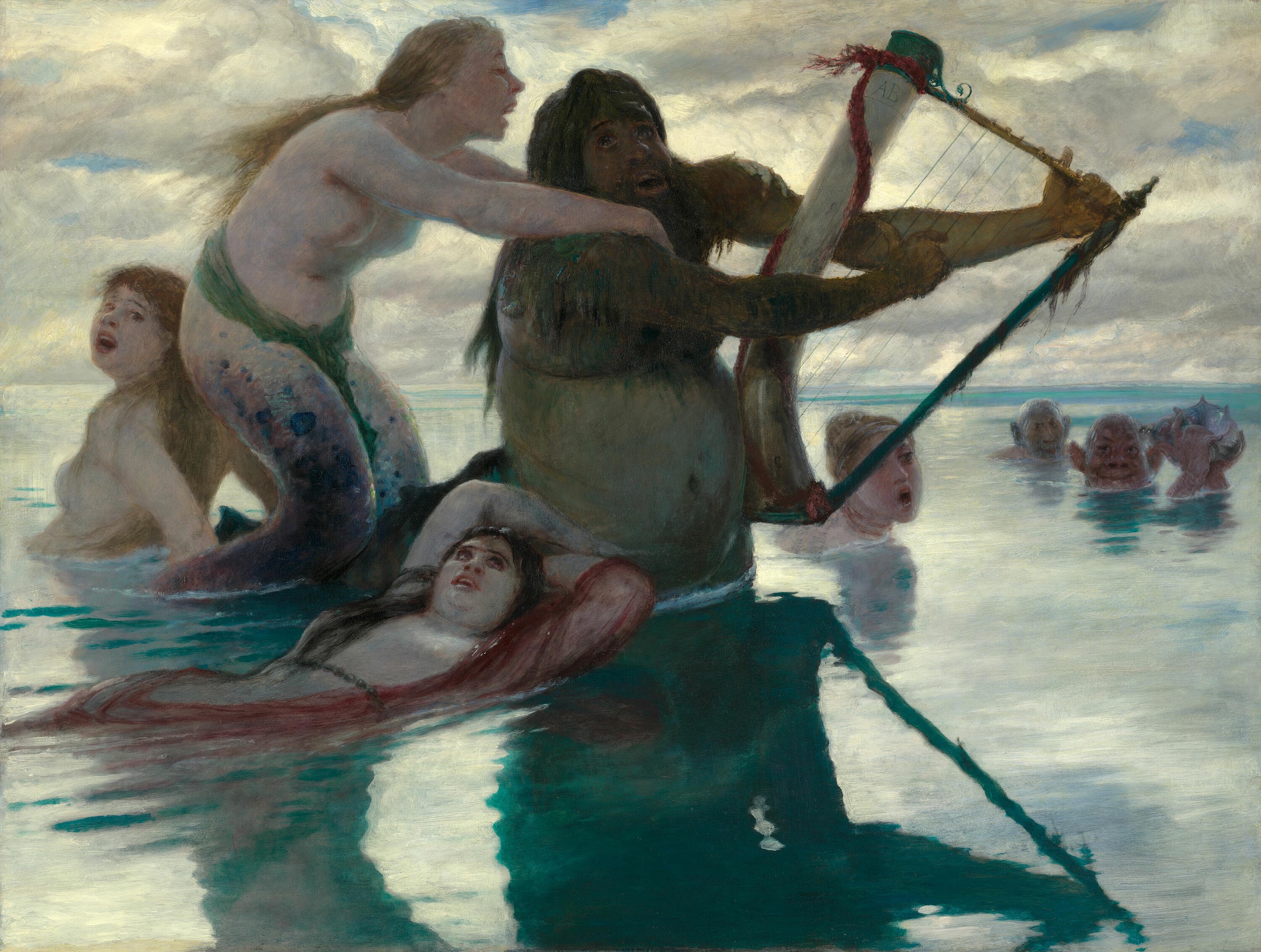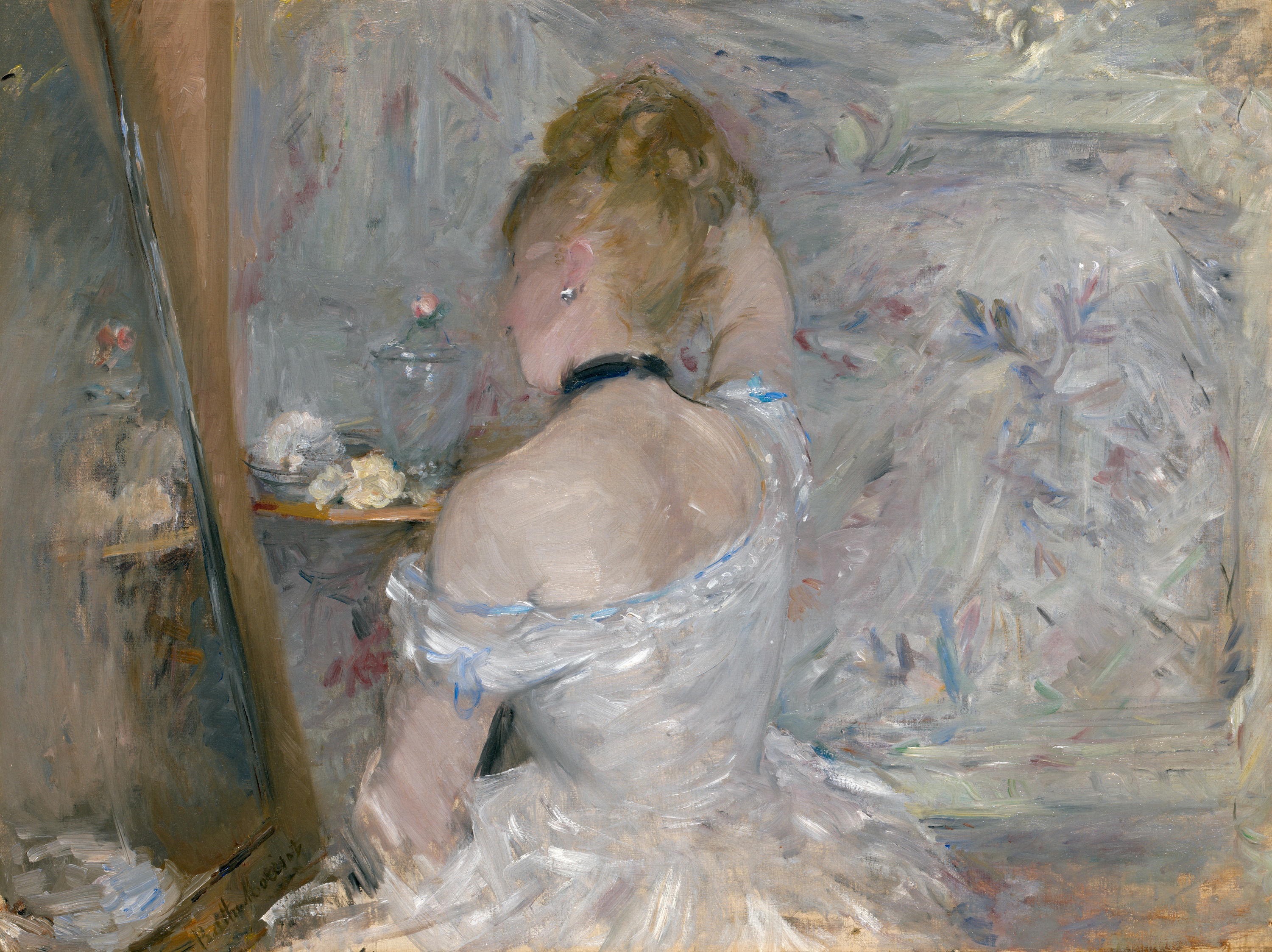EmergenceScenes

Rodolphe Bresdin: Biblical Scenes (Not Dated)
" … Successfully seeming so damned ordinary."
What if a writer didn't start with his story's end in mind? What if he considered his art, his calling, to be different from transcription of a cleverly pre-developed plot? What if he never gave plot a single thought but instead considered conveying plot to be an emergent property rather than an underlying purpose of his work? What might result, aside from said writer being rudely thrown out of the fraternity? The result might produce EmergenceScenes, glimpses of what might easily be mistaken for deliberate plot were they not so divergent. After considerable consideration, they might sum to the same thing to produce a certain coherence not evident while the emergence was busy unfolding. Rather than starting with his ending in mind, the creator of EmergentScenes begins with the intention of discovering what might later be mistaken for a plot line. He begins by simply starting with intention.
In our real world, in our lived lives, no clever plotlines exist. Oh, we're perfectly capable of projecting plot line-seeming structures out over pretty much any scene, but these amount to acts of projection, a wholly different sort of structure than deliberate plotting. Projections seem more ex post facto than any writer's plot line. These projections could likely not be outlined beforehand or result from simple transcription. They require active interpretation, the making of meaning, more than they require simple discovery. They are the product of the reader rather than of the writer. The question, "What does the writer mean here?" becomes irrelevant when interpreting EmergenceScenes, for it must always be the reader interpreting meaning. The writer's serving prompts and discovering for himself, and certainly not disclosing everything he's finding for himself, either.
EmergenceScenes seem like intensely private business and might never properly belong on any sort of shared page. Consider the result a journal, the very most personal sort of story, only ever useful for the insights it might spark in the reader and never for instruction. The EmergenceScenes writer does not ever pretend to know, for the purpose of his endeavor must properly be discovery. This might be the proper purpose for his reader, too. The two discoveries might diverge and might properly be very different, even dichotomous rather than convergent. The stories sure seem to follow one another, their order sometimes exhibiting intricate, if implicate, structure. They were placed like stones in a dry stone wall, one after the other, according only to local conditions, with little appreciation of any larger context. Each stone's, each story's, just a stone or simply a story. Their proximity has almost nothing to do with each stone's or any story's content. Their wall-ness, their completeness, the result of emergence more than deliberateness, always an accident on purpose.
There is no knowing before beginning. There can be no credible judging until after completion. Between beginning and judging, then, this writer does only what he can. He can face his keyboard every morning, lest he lose the rhythm of his work. He can contribute something, however mysterious or hollow it might first seem. Not everything he creates will even aspire to greatness. Instead, he develops an eye for the ordinary, which might well be the rough equivalent of an eye for the extraordinary, too, for seeing seems capable of transforming anything into an extraordinary, undoubtedly different than whatever it might have been before being noticed. Like you were different before your presence was noted and much, much different before it was authentically appreciated. EmergenceScenes must be created with this intention of noticing, with the implicit intention of loving the result. To represent this world as it is, or, actually, was, seems a great gift, both to give and receive, though it most days seems merely destined to only Successfully seem so damned ordinary.
————
It Might Be Enough To Keep Asking Questions
This writing week marked the first full week on the downside of this series. I'm more than halfway through the expected ninety installments. It most days seems like I've barely started, but I'm screaming now toward the finish line where my Success or failure might finally be adequately assessed. I'm observing my behavior as I work through this series, and I suppose I have become my teacher. Thanks to the concept of AmplifiedReflective, which I rediscovered and introduced this week, I, the titular leader of this expedition as its creator, might also, or actually, be the student but then also the teacher. When was any inquiry any different? I have almost nothing authoritative to say about Success, but how might that statement differ? We might choose between those who delude themselves about knowing definitively and those who seem reasonably certain that they're not yet knowing and might never come to know. It might be enough to keep asking questions, to keep throwing pitches without ever knowing beforehand, which pitch might become a home run.
-
Weekly Writing Summary
-
I began my writing week by introducing a fresh term into this inquiry, *AmplifiedReflective, which proved to be the most popular posting of the period. "We're still open, thank heavens, for difference to overtake us and for synchronicity's influence, just as if we could successfully muster any defense against these influences, or would seriously want to. We live our lives accidentally on purpose, just the way we suppose that we should, fortunate for forces we cannot define, hardly understand, and gratefully acknowledge, Successful beneficiaries of The AmplifiedReflective."
Arnold Böcklin: In the Sea (1883)
-
I next admitted that I deep down Fear Success. "I move forward, not really hoping for the best, but hoping to somehow avoid the worst. I prefer to travel hopefully rather than arrive. I'm not excited by the prospect of this striving's end, so I pretend it's infinite, semi-Successfully deluding myself instead."
Walter Gramatté: Die Grosse Angst [The Great Fear] (1918)
-
I next considered Taking and Making Stock, of assessing progress in T/MakingStock. "Progress never was my most important product, anyway, nor the underlying purpose of this effort." 
Berthe Morisot: Woman at Her Toilette (1875/80)
-
I channeled my inner Wittgenstein in a short prose poem I called Complitition. "If I focus upon Succeeding, I might be insisting upon losing something far more important than winning ever could have been."
Édouard Manet:
Beggar with a Duffle Coat [Philosopher] (1865/67)
-
I explored my manner of Succeeding, concluding that nobody but the seeker really has any right to judge any other seeker's Style. "Success seems more personal than anybody else's judgement. I hold a nearly sacred responsibility to judge my own behavior and to also not judge it too harshly. I always need my own most generous possible interpretation, too, for it might be my most important ethical responsibility here."
Dominicus Custos:
A Grotesque Head with a Helmet in the Style of Arcimboldo (1594)
-
I reported on a book I never expect to finish reading, but from which I gleaned one useful insight, that we live under a regime of CruelOptimism. "Perhaps we are especially blessed, if not precisely in the way we were convinced. Our once limited skills in self deception seem to be trending ever stronger."
Pierre-Paul Prud'hon:
Le Cruel rit des pleurs qu'il fait verser
[The Cruel One Laughs at the Tears Which It Causes To Be Shed]
(1793)
-
I ended my writing week by introducing my Spot. "I feel as though I am forever balancing rather than standing in anything like a secure or stabile balance. This balancing brings both drama and meaning to my life, and it's always shifting. Not often dramatically shifting, but continuously slightly slipping: sideways, forward, backward, up, and down."
Gordon W. Gahan: Star's Daughter (Fourth of eleven):
Her favorite spot for studying scripts is the big window sill in her Manhattan apartment. (1964-65)
-
I thought this writing week's product erratic until I took stock of the resulting EmergenceScenes. I consider this writing week's product rather prescient, though it did not seem so, even for a minute, as I produced it. I suppose I could thank the AmplifiedReflective for delivering this result, though I suspect that even that might be more projection than substance. I owned up—finally—to my Fear of Success, and I slowed down enough to Take, or was that Make, stock? I stymied near the middle of the week. Which benevolent God rendered each week an odd number of days? I admitted my frustration before owning up to my Style, which might be MY business, and nobody else's. Please do not mistake my approach for a recommendation or a template for achieving Success. Each aspirant must necessarily be their own teacher and student. I noted in passing, damned the notion to Hell or somewhere that we're all very likely under the malign influence of Cruel Optimism. I ended the week balancing again, seeking without real hope of finally finding my Spot. Was this ever any different than this? So here I stand, finished with this week and sublimely unprepared for the upcoming one, just like last week and every damned week before, overseeing EmergenceScenes. A Success of sorts? Who could know?
©2023 by David A. Schmaltz - all rights reserved


